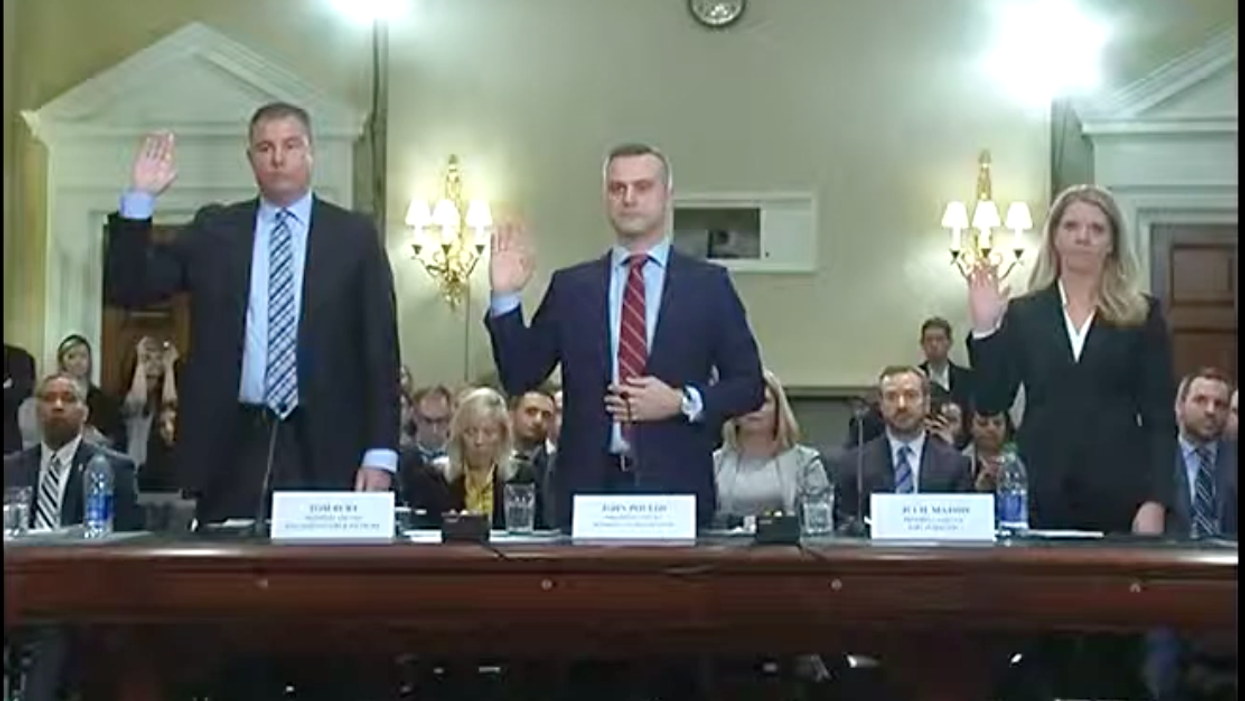Here's something you don't see every day: Executives of three companies agreeing with the suggestion they should be under stronger oversight by Uncle Sam.
But that's exactly what happened Thursday, when representatives of the three companies that make more than 80 percent of the 350,000 voting machines used in the United States testified before Congress.
Just the appearance at one hearing by leaders of three competing businesses — Election Systems & Software of Omaha, Dominion Voting Systems of Denver and Hart InterCivic of Austin, Texas — was in itself historic. Even more unusual was their willingness to embrace tighter federal regulation and oversight ahead of the election, which could provide them with some government cover if the presidential contest is marred by hackers once again.
It appeared at the outset that the hearing, convened by the House Administration Committee to examine election security from the perspective of vendors and computer and election experts, would be confrontational. In her opening remarks, Chairwoman Zoe Lofgren noted how some had "accused these companies of obfuscating, and in some cases misleading, election administrators and the American public."
But the tension seemed to vanish when the California Democrat asked the three if they would support legislation imposing federal disclosure requirements on election equipment manufacturers in five areas: their cybersecurity practices, their suffering of cyberattacks, their personnel policies including background checks of employees, details of their ownership structures including foreign investment, and details of their supply chains.
The presidents of all three privately held companies — Tom Burt of ES&S, John Poulus of Dominion and Julie Mathis of Hart InterCivic — replied with an unqualified yes.
In his testimony, Burt said he supported additional federal funding to "bolster the federal testing and certification program," because "this testing must become mandatory for election providers and be managed at the federal level."
Mathis said her company would like the federal government to expand its oversight to include voter registration databases, electronic poll books and election night results reporting.
Lofgren pointed out that the disclosure proposals she asked about would all be mandated with the enactment of election security legislation passed by the Democratic-controlled House in June on a mostly party-line vote. The bill has yet to be considered by the GOP-controlled Senate.
"Perhaps your testimony will encourage them to move forward," Lofgren said with a smile.
Despite the companies' apparent enthusiasm, the ranking Republican on the committee, Rodney Davis of Illinois, again argued against an expanded federal role in local elections. But he did suggest that the Help America Vote Act, which established the Election Assistance Commission and created voluntary security standards for voting machine vendors to follow, be modernized.
Committee members from both parties also expressed concern about the security impact of foreign ownership of election companies and foreign sourcing of the components of their machines.
All three executives testified that none of the components in their equipment were made in Russia, but each said that some components were made in China. They all said it would be impossible to build election equipment without using Chinese-made electronics.
Another witness, Elizabeth Howard from the Brennan Center for Justice, outlined the group's proposal to provide comprehensive federal oversight of election vendors. "Even colored pencils are subject to more federal regulation that voting systems," she said.
And Matt Blaze, professor of computer science and law at Georgetown University, recounted how hackers at a conference last year were able to quickly find ways to compromise every piece of equipment brought to the event.




















Trump & Hegseth gave Mark Kelly a huge 2028 gift